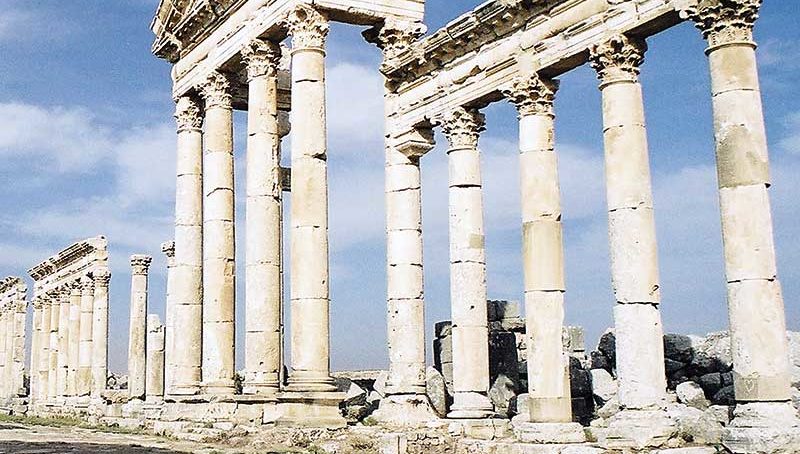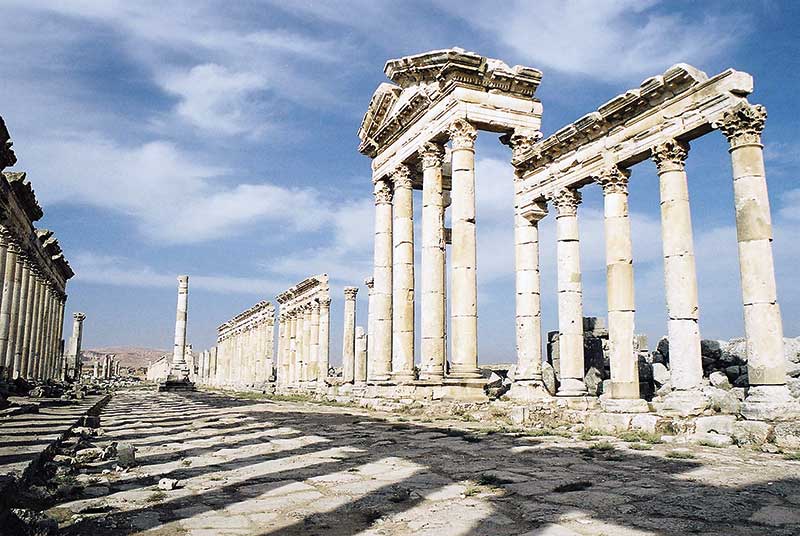Now that the Syrian conflict appears to be winding down, Tarek Hammoud, offshore team manager and consultant at Hodema Consulting Services, breaks down the city of Damascus, while mapping out its path to recovery
Syria’s capital city is home to four main food and beverage (F&B) and retail zones. Right at the heart of Damascus, you’ll find the area composed of Abou Remmaneh, Rawdah and Malki. Home to the upper class, embassies and corporations before the war, this area is now trying to regain some of its luster. Another well-known zone, Mazzeh sits above the bustling Fayez Mansour highway, heading south-west. Overlooked by the presidential palace, the well-to-do neighborhood attracts crowds of students who attend the University of Damascus. However, unfortunately, in recent years, Mazzeh has been the target of shelling and multiple attacks, with the hospital and infamous military airport also located there. A few blocks further on marks the beginning of Kafarsouseh, the former agricultural suburb of Damascus and now one of its most developed districts, hosting official buildings and two shopping malls: Cham City Centre and Damascino Mall. Bab Touma, the fourth zone, named after a famous historical quarter of the old city is enough to remind us what Syrian hospitality does best.
Something for everyone
Each of these zones offers a specific experience. Venues located in residential areas such as Malki – and even Bab Touma – often tend to open next to each other, forming a group of restaurants that grow organically. Many also convert ground-floor residential and commercial units into restaurants and cafes. In contrast, along Mazzeh highway and the city’s avenues, the premises are larger, with many offering a seat in the sun. The global trend for malls is also evident, with these centers providing a wide range of F&B concepts.
It goes without saying that the city’s F&B industry has seen better days. Before the war, Syria’s hospitality sector was benefiting significantly from the country’s growing status as a must-visit destination for travelers from across the globe. However, this good fortune came to an abrupt end with the 2011 uprising and ensuing conflict, which has closed scores of outlets. Professionals were forced to navigate a highly challenging economy for the next few years until 2015, when business started to pick up again. This rebound was explained by the slight improvement in the economy and the conversion of many retail units to F&B venues.
What’s on your plate?
The vast majority of venues fall into the cafe-restaurant segment, serving Middle Eastern cuisine, and more specifically, Syrian, with a preference for Aleppan dishes. Shisha is on every menu. One of the big operators in the market is Gemini Group, which owns and operates Naranj and Nata, among others, and has many F&B brands across the country. However, most cafes and restaurants are still run by small independent owners, which means a high demand for brands and franchises. In terms of cuisine offered, many venues provide menus featuring dishes from standard international recipes alongside local ones, but very few have developed themed or ethnic cuisines, such as sushi or Indian food.
Before the conflict, some global brands had started to take an interest in the Syrian market, but unsurprisingly, both international and regional brands have since shelved their plans, at least for now. For those now eyeing the Syrian market, the potential for development is enormous. Regional Middle Eastern operators and franchises, alongside some European brands, may well want to consider exploring these promising opportunities. When it comes to the F&B side, it’s worth noting that whatever your concept is, in terms of outlet category, positioning and type of cuisine, Damascus will welcome you with open arms. One mixed-use project is already in the pipeline in Yaafour, the new Royal Residences, which includes a commercial component with a built-up area of 26,400 sqm., and will be home to more than 50 F&B and retail regional and Lebanese brands. Oriental restaurants and a supermarket are already planned.

















